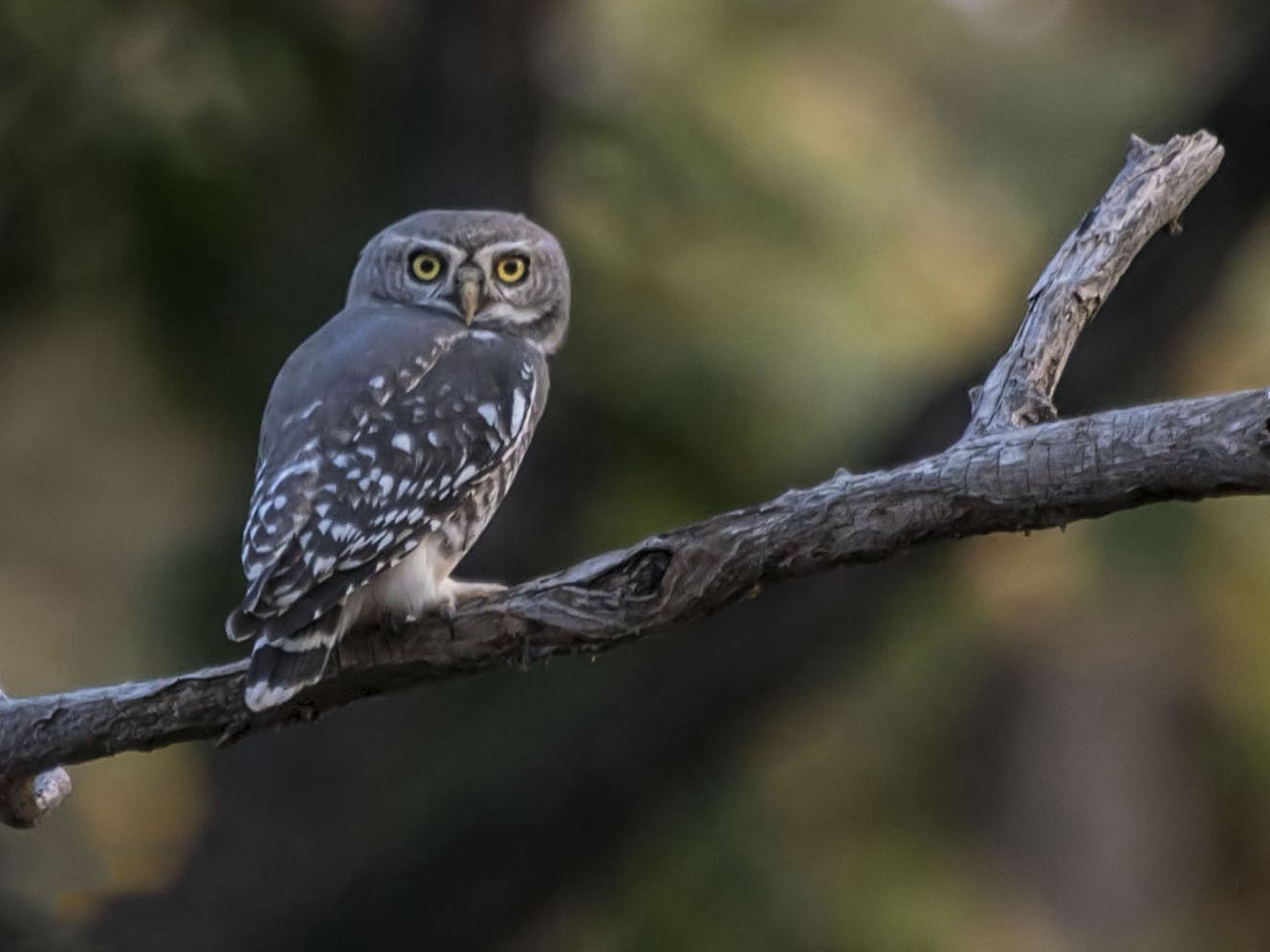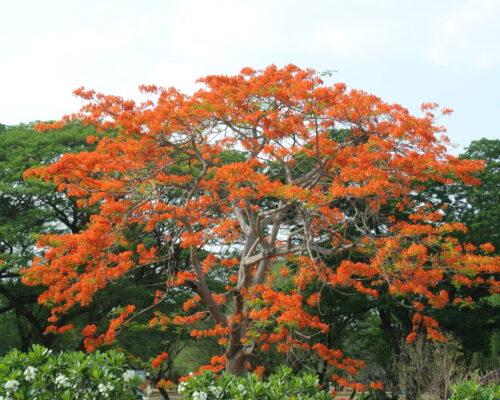Tadoba, the home of the tiger. This vast expanse of forest has forever been heralded as the domain of this royal feline, which makes us forget that these vast deciduous teak and sal forests are home to so much more. There are over 300 species of documented birds in Tadoba. The vast forest patches mingling with small grasslands and watering holes make for diverse ecosystems, allowing birds of all habitats to thrive.
In this article, we’d like to showcase 4 birds that have a special association with Tadoba and Maharashtra. Some of these may be common elsewhere, but the best place to spot them is near our resort in Tadoba.

Forest Owlet:
The Forest Owlet is one of India’s most endangered species of birds. It is endemic to our country which makes it all the more special. On an early morning safari in Tadoba, look up in the canopy and you might just find one still dozing off, or basking in the sunlight for a while before retreating back into its hole. If you’re lucky, you may even find a few of these lovely owls huddled together for warmth!
These small birds are birds of prey like all owls and feed on small rodents and reptiles. Forest Owlets have cousins in the city, the Spotted Owlets. However, they do not have the same number of spots and sport darker features that enable them to hide better in the forest. A perfect example of how evolution has affected birds! The Forest Owlet was reported to be extinct in the 1800s but was rediscovered in 1997, and to this date, the Owlet has been recognized as a separate species.
Today, the Owlet is under threat from human activities and land deforestation and there are fewer than 1000 individuals reported throughout the region, which makes spotting this beautiful owl on a jungle safari in Tadoba all the more special.

Oriental Dwarf Kingfisher
One of Maharashtra’s most enigmatic birds is the Oriental Dwarf Kingfisher. They are also known as the Black-Backed Kingfisher owing to their dark purple backs which may appear even darker under low light. They are one of the smallest kingfishers known to exist on the planet. Perhaps the most easily distinguishable feature of this bird is its striking plumage of purple, orange, red and blue. Despite the name, Oriental Dwarf Kingfishers are also found in parts of the forest that are far away from a water body. They feed on insects and small amphibians or reptiles; after all, that’s the most they can fit into their tiny beaks!
Oriental Dwarf Kingfishers have a unique method of attracting mates as well. The males woo females by offering them a delicious morsel, usually a fresh insect. Breeding is possible only if the female is pleased with the treat! There have also been instances of multiple males putting on a breeding display wherein the female then picks the best dancer!
These pretty little birds are extremely agile and shy, but they are not to be missed on a jungle safari in Tadoba.
White Rumped Vulture
The White Rumped Vulture has a special home in Tadoba. Classified as a critically endangered species, there were almost no records of the species in Tadoba in recent times until last year, when a sighting of 4 individuals was made.
Vultures are great assets to the jungles because of the cleanup job they offer. Their bodies are specially designed to survive off of carrion and leftover meat in the jungles. They can soar on thermals
This species has special protection but still suffers greatly from pesticide consumption and habitat loss. It is indeed one of Tadoba’s and India’s rarest species of bird.




